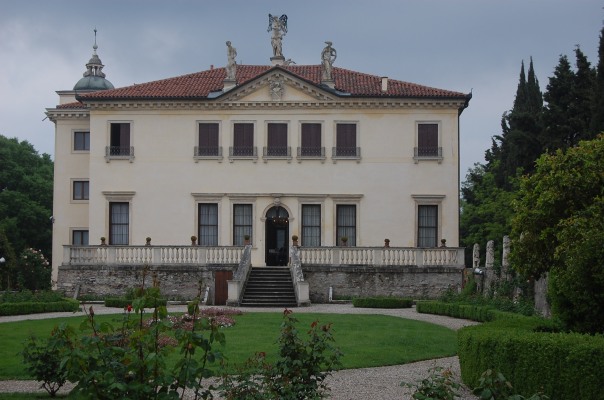We spent last (extended) weekend in and around Vicenza in Northern Italy. Although I don’t live far away from that particular provincial town, it’s one I’ve never visited or had the opportunity to explore. It lies just west Venice and many will travel through or past it when travelling from the Lagoon City to visit the more famous ‘sister’ town Verona. But like many small Italian towns it’s well worth the visit, not just because it lies off the beaten tourist track but because it’s full of hidden treasures which otherwise you may not get to see and savour. Vicenza is the city of Andrea Palladio, the Renaissance architect who basically brought classical architecture into the present, re.inventing its symmetrical lines, sense of perspective and harmony for what we now know as the Renaissance. he Quattro Libri dell’architettura are the fundamental writings for all of modern architecture.
Just outside the town is one of his most famous buildings, the Villa La Rotonda, built on a hilltop overlooking the town on one side and the rolling hills on the other.

Nearby is the Villa Valmarana ai Nani, another fine country ‘palace’ with a nice tidy garden and foresteria or ‘guest house’ to one side.

Back in town there’s plenty to see of course (you may need two or even three days if you like your sightseeing to be leisurely), first and formost the Teatro Olimpico, again a Palladio design, although like most of his more magnificent work it was never completed in his own lifetime and it was up to others to work out what he had intented. The theatre itself is relatively small but inside it contains a real stone facade as a “backdrop” which must be the most incredible thing that’s ever been built inside any theatre in the world.

Breathtaking hardly describes it well enough.





















